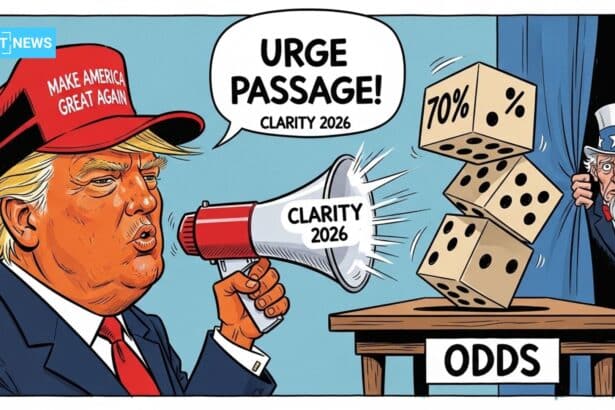Binance Targets Five New Asia Licenses Amid APAC Crypto Growth
Binance Asia licenses are becoming a focal point in the global crypto…
Altcoin Stress Hits Extreme Levels as 38% Near Record Lows
This article was first published on Deythere. In the parts of crypto that…
Bitcoin Stability Contrasts With Ether and Solana Declines Amid Mideast Stress
This article was first published on Deythere. Crypto market began the week on…
Bitcoin Price Surges 6% Towards $70K as CME Premium Jumps
Bitcoin price surge set the direction at the start of Monday’s U.S.…
Uniswap Wins Lawsuit as Court Rejects Scam Token Liability Claims
This article was first published on Deythere. The long running Uniswap lawsuit…
How Ethereum Price Prediction Turns Critical After 6 Losses
Ethereum price prediction has become one of the most searched topics in…
Senate Housing Bill Adds Retail CBDC Ban With 2030 Sunset
This article was first published on Deythere. A bipartisan U.S. Senate housing package…
Crypto Market Sell-Off: Geopolitics, Liquidations and $500M Fallout
This article was first published on Deythere. Crypto market sell-off marked a challenging…
Vitalik Says Ethereum Smart Accounts Are Finally “Within a Year”
Ethereum’s long-awaited upgrade to introduce account abstraction, popularly called Ethereum smart accounts, …
Cardone Capital Prepares Blockchain Tokenization of Property Assets
Cardone Capital tokenization is no longer a quiet concept as it is…








































